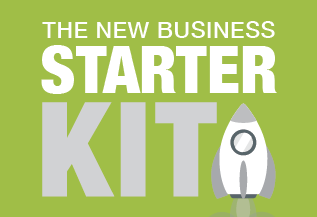Death and Taxes
Benjamin Franklin once said, "In this world nothing can be said to be certain, except death and taxes."
While everyone is happy to talk about paying too much tax, death is a very sensitive topic. The loss of a loved one can be traumatic but the grief can be compounded if they die without a will. Aretha Franklin, the Queen of Soul, recently died after a long battle with pancreatic cancer and reportedly didn't have a Will. Her estate is estimated to be worth $108 million. Other legendary performers like Prince and James Brown also died intestate (no Will) and Brown's estate is still unsettled 11 years after his death.
The topic of estate planning and the administration of an estate is very important, so let's explore some important aspects of the administrative process.
After a person dies and the funeral arrangements are complete, the focus will eventually turn to financial matters including tax and superannuation. Typically, an executor will be appointed who will be responsible for administering the estate of the deceased person and the administration process usually starts with obtaining probate. This is a document issued by the court that confirms that the person whose affairs are being administered are in fact deceased and therefore cannot hold bank accounts, shares or property and that the executor appointed in the will is legally entitled to wind up the affairs of the estate.

One of the important steps is to lodge a final tax return on behalf of the deceased that the Australian Taxation Office (ATO) refer to as a 'date of death tax return'. The ATO insists that this must be lodged on a paper return, but otherwise all the other normal assessment conditions apply including individual income tax thresholds, tax rates, withholding conditions and lodgement requirements. The date of death tax return will be the last document that requires the deceased's individual tax file number (TFN) and upon completion, this TFN will not be used again.
There are a few other differences when completing this final tax return. Firstly, the executor will need to print the words "Deceased Estate" on the top of the first page of the return, sign the tax return on behalf of the deceased and show the name of the taxpayer as "The legal representative of <person's name>, deceased". Also, at the question, "Will you need to lodge an Australian tax return in the future?" answer the word "No" or put an 'X' in the box.
Assessable income earned or derived and deductible expenses incurred, up to the date of death, should be included in the tax return. Any income earned and deductible expenses incurred after the date of death (for example from investments) will need to be dealt with in the deceased estate's Trust Tax Return - not in the final return of the individual. The treatment of capital gains or losses would be dealt with in a similar way and if the deceased person had accumulated losses, these can be offset against income in the final tax return (capital losses may be offset against capital gains) but can't be carried forward into the deceased estate. Ordinary losses, as well as capital losses, that can't be offset in this final tax return will lapse.
The ATO will usually send the notice of assessment to the executor, which should show any refund owing or any tax liability. As such, the executor may need to withhold amounts from the assets or income of the deceased estate to pay this tax liability.
As a guide, below is a checklist of items you may need to address through the process. Of course, if the deceased person also carried on a business, further advice should be sought and we recommend you talk to us if a deceased estate trust return has to be completed.
CHECKLIST FOR A DECEASED ESTATE
| 1 |
DID THE DECEASED PERSON HAVE A WILL? If Yes, establish who the executor or administrator is of the will. If No, contact the public trustee in your state or territory to determine if they will act on behalf of the deceased person. If so, they will take the action required. |
| 2 |
HAS PROBATE BEEN OBTAINED BY THE EXECUTOR? If not, you may need to provide further information if you wish to establish authority to deal with the tax affairs of the deceased person. |
| 3 |
OFFICIALLY NOTIFY THE ATO OF THE PERSON'S DEATH Complete the 'Notification of a Deceased Person' form that officially notifies the ATO of the person's death and it can be used to establish authority to deal with their tax affairs. You will need to provide the death certificate and supporting documents required at an Australia Post outlet for an interview, or certified copies to the ATO by mail. The ATO may also attempt to match individual records to Births, Deaths and Marriages data. |
| 4 |
DO YOU NEED TO LODGE A FINAL INDIVIDUAL TAX RETURN? Refer to information in this article and make sure there are no outstanding tax returns for prior years. If Yes, this return should cover the period from the previous July 1 to the date of death. If No, complete a 'Non-lodgment advice form' and send it to the ATO. On the form, where it asks for "Reason for not lodging a tax return" write "Deceased" and the date of death. |
| 5 |
OBTAIN A TAX FILE NUMBER (TFN) FOR THE DECEASED ESTATE As a deceased estate is considered a trust, a 'TFN application for a deceased estate' form will be required. |
| 6 |
LODGE THE DECEASED ESTATE TAX RETURN(S) A trust tax return will need to be completed and lodged. Each financial year will require another such return to be lodged until the deceased estate has been fully administered and no longer has a tax liability. |
If you have any queries regarding the taxation issues regarding a deceased estate, please don't hesitate to contact
our office.
This article forms part of our September 2018 Business Accelerator Magazine. Click HERE to download the full edition or browse other articles in this edition below:
Other Articles in this Edition:
- Thinking of Starting a Business?
- Beware Just Claiming 'Standard Deductions' This Financial Year
- What's on the ATO Hitlist this Year?
- Franchisee Gets Massive Fine for Poor Record-Keeping
- Law Changes Impacting Business Owners
-
Expand Your Customer Base with Facebook Advertising
IMPORTANT DISCLAIMER: This article contains general advice only and is prepared without taking into account your particular objectives, financial circumstances and needs. The information provided is not a substitute for legal, tax and financial product advice. Before making any decision based on this information, you should speak to a licensed financial advisor who should assess its relevance to your individual circumstances. While the firm believes the information is accurate, no warranty is given as to its accuracy and persons who rely on this information do so at their own risk. The information provided in this article is not considered financial product advice for the purposes of the Corporations Act 2001.












